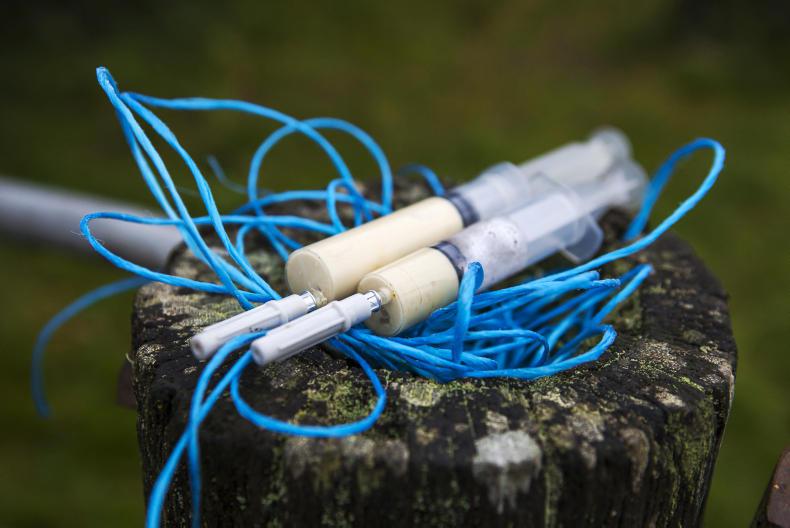There was much annoyance in Veterinary Ireland last week after the Irish Farmers Journal revealed that practices can be bought by businesses including multinational vet chains.
The Veterinary Council’s new code of conduct makes it clear that a practice can be owned by a business person or by a company – as long as the clinical work is done by a qualified vet.
It prompted Veterinary Ireland to threaten legal action and warn about how services to farmers could be affected.
Veterinary Ireland is the vets’ version of the IFA, while the Veterinary Council is their equivalent of the Department of Agriculture.
Weakening vet protests are the dairy co-ops and feed compounders who employ vets and thereby provide a veterinary service. There is also a growing number of vets who are themselves banding together and operating as limited companies.
Those companies usually bulk-buy medicines, employ the vets and support staff and are taxed at 12.5%.
Therefore, it looks like vets don’t object to corporate structures – as long as they own the companies.
Some of the most prominent names in Veterinary Ireland are of course the owners and directors of the XLVets Ireland group, which include Conor Geraghty and Donal Lynch.
Some older vets would be happy to sell out to a big multinational company and retire.
However, younger, up and coming vets – the young tigers of Veterinary Ireland – want to own a practice, not be an employee in a big chain.
They fear that smaller independent practices could struggle to compete with the buying power of a multinational chains and that farmers could be tempted by cheaper medicines or services. Multinational chains could cherry pick the more profitable pet care side of the sector.
Generations of farmers have been well served by their local vets, who work long hours travelling back lanes and dealing with wild cattle in rough conditions. Veterinary Ireland warns this ethos may not continue in big groups owned by venture capital shareholders.
The code of conduct specifies that all practices, regardless of who owns them, must provide 24-hour care to clients, either themselves or by co-operation with neighbouring practices.
But many farmers will feel their local vets have a proven track record that a veterinary chain headquartered elsewhere may not have.
Read more
Multinational chains seeking to buy vet practices
Vets considering legal action over ownership changes
There was much annoyance in Veterinary Ireland last week after the Irish Farmers Journal revealed that practices can be bought by businesses including multinational vet chains.
The Veterinary Council’s new code of conduct makes it clear that a practice can be owned by a business person or by a company – as long as the clinical work is done by a qualified vet.
It prompted Veterinary Ireland to threaten legal action and warn about how services to farmers could be affected.
Veterinary Ireland is the vets’ version of the IFA, while the Veterinary Council is their equivalent of the Department of Agriculture.
Weakening vet protests are the dairy co-ops and feed compounders who employ vets and thereby provide a veterinary service. There is also a growing number of vets who are themselves banding together and operating as limited companies.
Those companies usually bulk-buy medicines, employ the vets and support staff and are taxed at 12.5%.
Therefore, it looks like vets don’t object to corporate structures – as long as they own the companies.
Some of the most prominent names in Veterinary Ireland are of course the owners and directors of the XLVets Ireland group, which include Conor Geraghty and Donal Lynch.
Some older vets would be happy to sell out to a big multinational company and retire.
However, younger, up and coming vets – the young tigers of Veterinary Ireland – want to own a practice, not be an employee in a big chain.
They fear that smaller independent practices could struggle to compete with the buying power of a multinational chains and that farmers could be tempted by cheaper medicines or services. Multinational chains could cherry pick the more profitable pet care side of the sector.
Generations of farmers have been well served by their local vets, who work long hours travelling back lanes and dealing with wild cattle in rough conditions. Veterinary Ireland warns this ethos may not continue in big groups owned by venture capital shareholders.
The code of conduct specifies that all practices, regardless of who owns them, must provide 24-hour care to clients, either themselves or by co-operation with neighbouring practices.
But many farmers will feel their local vets have a proven track record that a veterinary chain headquartered elsewhere may not have.
Read more
Multinational chains seeking to buy vet practices
Vets considering legal action over ownership changes






 This is a subscriber-only article
This is a subscriber-only article










SHARING OPTIONS: